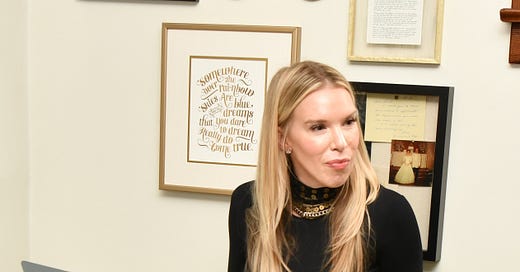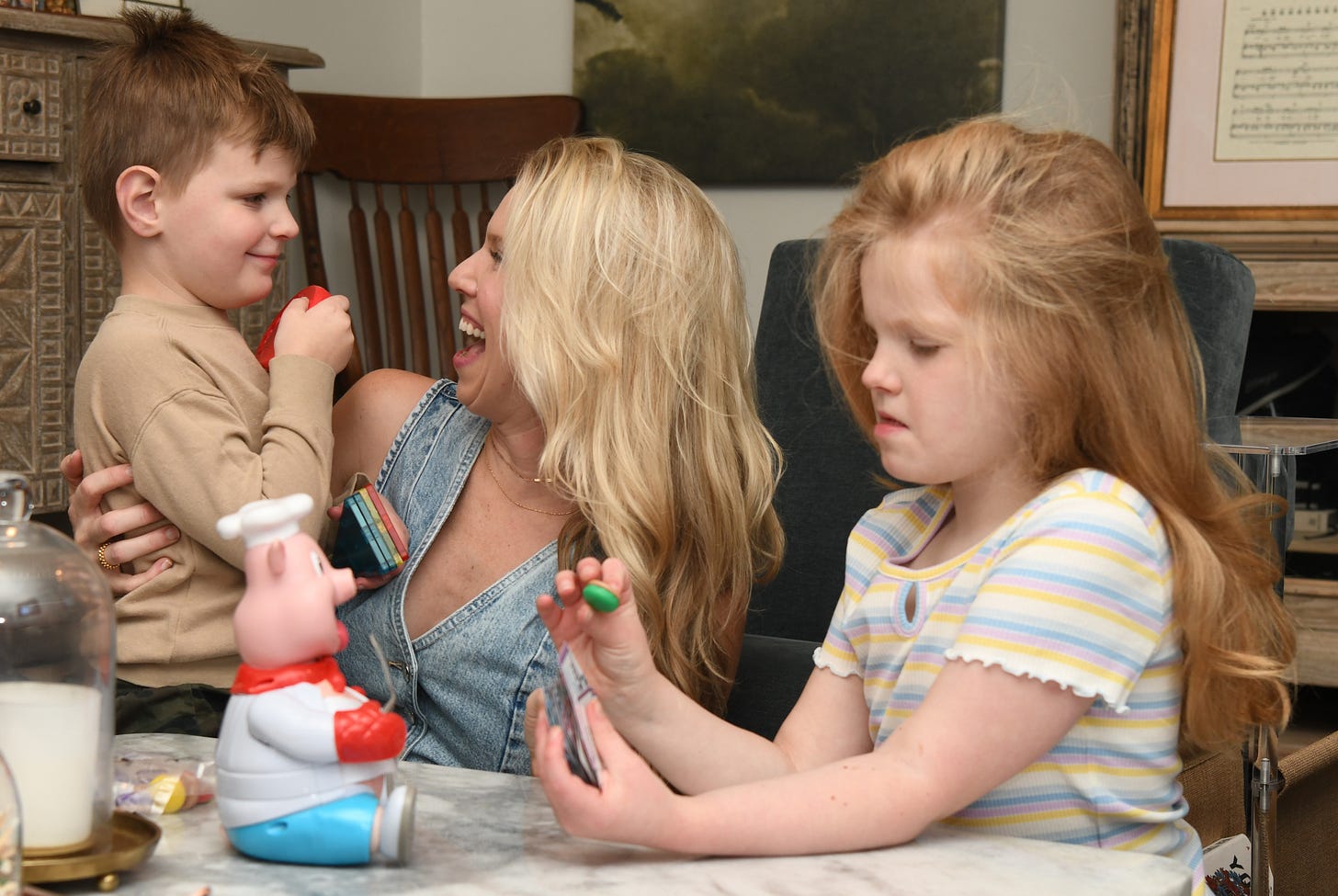Why the Neurodiversity Movement Won't Touch Kids Like Mine - and Why Joe Rogan Might Be the Only One Willing to Listen
Joe,
I’m not writing to debate RFK.
I’m writing because - for once - someone said the quiet part out loud.
He acknowledged families like mine. And no one ever does.
My name is Sarah Kernion. I’m a writer, podcast host, and the mother of two non-speaking, profoundly autistic children - Milly (10) and Mack (7). They have apraxia and dyspraxia - severe motor disorders that lock the mind inside a body that won’t cooperate.
Their minds are sharp. Their language is fully receptive. They understand everything. But they can’t speak. They can’t dress, feed, or toilet or bathe themselves.
They live in a world built for speed, independence, and sound - and they require full-time, round-the-clock care.
I’m not looking for sympathy. I’m looking for a correction.
Because for families like mine, autism is not a social identity or TikTok trend. It’s not “quirky” or “creative.” It’s relentless. Isolating. Inescapable. And the neurodiversity movement, for all its wins, has failed us.
We need a separate lane.
A separate conversation.
A separate call to action.
The brilliance we celebrate in high-functioning neurodivergence? I see glimmers of it in my children too - my daughter’s ear for music, my son’s uncanny empathy. But that brilliance is trapped inside a neurological prison. This isn’t “different.” It’s disabled.
These aren’t behavioral issues - they’re neurological barriers with deep genetic roots that severely impact a person’s ability to communicate, despite intact cognition. And no one is asking why.
Where are the studies directly targeting the genes responsible for sensory processing disorder - the ones that make food textures feel like shards of glass, or turn clothing tags into torture devices, or the inability to learn how to toilet independently?
This isn’t a matter of picky eating or wardrobe preferences or stubbornness. It’s neurological. It’s cellular. It’s genetic.
Milly was diagnosed in November of 2017 and Mack was diagnosed in 2019. I’ve been parenting two profoundly autistic, non-speaking children for 8yrs — and to be honest? I need more.
I need more answers, more research, more science that doesn’t stop at behavior plans and symptom management, but instead asks:
What’s actually happening in the brain? In the genes? And how do we unlock it?
Because this isn’t just about parenting.
It’s about possibility.
And we are long overdue for a shift in where the scientific spotlight falls. Where is the urgency to study neuroplasticity in children with severe autism?
Where is the magnitude of robust genetic research that keep profoundly autistic, non-speaking individuals from ever having a chance at independent adulthood?
These are real children, not metaphors. And this is not inclusion if we’re still excluded from the truth.
I saw your episode with Ky Dickens. You gave space for nuance, mystery, and the sacred. You didn’t flinch. You made room for what couldn’t be explained.
I’m asking you to do that again.
Because this is the part of autism that gets erased. And we are the parents on the front lines—fighting not for visibility, but for answers. For science. For soul. For a future that doesn’t abandon our kids behind a hashtag.
There’s a war going on in this space. And most people don’t even know it.
We need someone with reach. Someone with spine. Someone who isn’t afraid to touch the live wire.
You’re one of the only voices left who still tells the truth when it hurts.
See us.
Hear us.
Bring this story to light.
Because if we don’t name what’s real - we lose everything.
With respect and relentless hope,
Sarah Kernion
Inchstones by Saturday’s Story
Instagram: @saturdaysstory






